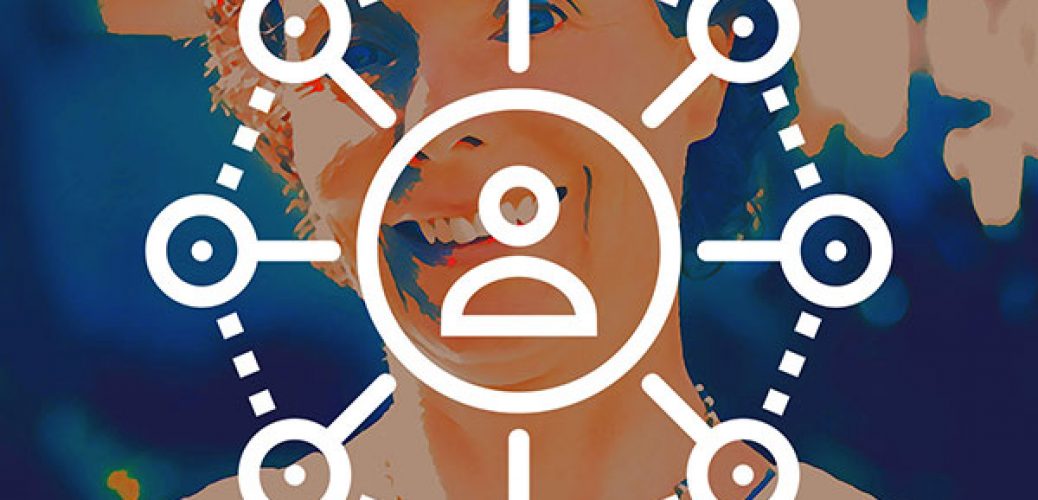Episode 10 – Dr. Brunie Felding On Ethical Communication
Podcast: Play in new window | Download (Duration: 9:22 — 12.9MB) | Embed Subscribe: Apple Podcasts | Google Podcasts | Stitcher | Email | TuneIn | RSS
Dr. Brunie Felding, Associate Professor in the Department of Molecular Medicine at Scripps Research, reflects on an instance where she hadn’t considered the effects on every individual audience member when constructing her talk on cancer.
EPISODE CREDITS
Guest Starring Dr. Brunie Felding – Associate Professor in the Department of Molecular Medicine at Scripps Research
Produced & Hosted by Adam Greenfield
Executive Produced by Patrick Yurick, Instructional Designer – MIT OGE
Executive Produced by Heather Konar, Communication Director – MIT OGE
Special thanks to the following editors who provided us invaluable feedback that aided in the development of this show:
Christopher O’Keeffe, Co-Founder of Podcation
Kristy Bennet, Manager – MIT Women’s League
Jennifer Cherone, Phd Candidate – MIT Burge Laboratory
Erik Tillman, Phd, Formerly of the Kim Lab & Currently A Fellow at Vida Ventures, LLC
The Great Communicators Podcast is a part of Gradcommx. Gradcommx, targeted at enhancing research communication, is the first offering of Gradx – a professional development project created for the graduate student population at the Massachusetts Institute of Technology by the Office For Graduate Education.
MUSIC & SOUNDS
“All The Best Fakers” by Nick Jaina is licensed under a Attribution-NonCommercial 3.0 International License (http://freemusicarchive.org)
“Astrisx” by Blue Dot Sessions is licensed under a Attribution-NonCommercial License. (http://freemusicarchive.org)
“Inamorata” by Blue Dot Sessions is licensed under a Attribution-NonCommercial License. (http://freemusicarchive.org)
“Deliberate Thought” Kevin MacLeod (incompetech.com) is Licensed under Creative Commons: By Attribution 3.0 License http://creativecommons.org/licenses/by/3.0/
EPISODE SCRIPT
ADAM GREENFIELD
Welcome to The Great Communicators Podcast presented by The MIT Office of Graduate Education, a professional development podcast expressly designed to bring lessons from the field to our graduate student researchers.
My name is Adam Greenfield and in the early stages of putting the podcast series together, one of the topics I was very interested in was who, if not themselves, holds scientists and researchers accountable. Was that something left up to the individual? Where does peer review come into play? And I’m not saying one is needed but is there perhaps some kind of oath?
Now, that last question may sound a little unnecessary but in the medical field, doctors are sworn to abide by the Hippocratic Oath, a specific set of moral and ethical standards when it comes to practicing medicine. So it got me thinking if scientists and researchers outside of medical practitioners had their own oath they’re expected to uphold. Online research shows there isn’t an oath established but some have been proposed without adoption.
All that said, it’s extremely important to note that just because there isn’t a single, internationally recognized way of making a promise to be ethical and moral in practice and thought for researchers and scientists, it doesn’t mean institutions at any level, especially one like MIT, won’t have established guidelines for this sort of behavior.
When I sat down with our guest in this episode, I asked if an oath for scientists is even needed.
BRUNIE FELDING
My immediate inclination to this question is we don’t need it, we have it. We don’t need a Hippocratic Oath.
ADAM GREENFIELD
That’s Brunie Felding…
BRUNIE FELDING
…and I’m an associate professor at the Scripps Research Institute.
ADAM GREENFIELD
Part of Brunie’s reasoning for not feeling like an oath is necessary for scientists is simply just from personal experience.
BRUNIE FELDING
From all I know of my many years in basic science, and I’m talking about basic science in the academia, which is non-profit science, academic science, I have not met one person where I felt like this person wasn’t fully devoted to finding, if you want to boil it down to, the truth.
ADAM GREENFIELD
She also was quick to point out that the truth is either as real as a two-headed unicorn or maybe we’re just going about it all wrong.
BRUNIE FELDING
I mean, the truth is something that is- I don’t know if it exists or not. But you want to find a meaning in something. You want to understand something. That’s your innate curiosity. That’s your drive. You’re not out there to find something that you’re purposefully looking for.
ADAM GREENFIELD
This is actually a pretty important statement to always keep in mind. In this and other episodes of this series, you’ll hear the guests talk about bias and how we, scientists or otherwise, may already be naturally inclined to lean a specific way. Our experiences both inside and outside of our educational careers will certainly shape who we are and the level of importance we place on things.
When we effectively communicate with others, a little piece of who we are is inevitably in that story, too. This comes with some risk but the reward is definitely worth it.
BRUNIE FELDING
You expose yourself when you communicate, you bring out information and you bring it out in your way. We all have perceptions. One person may look at a tree and say it’s green and another person may look at it and say it’s blue and it could be a cultural thing. And there’s nothing wrong with blue or green. You just have to realize that what you throw out is your personal viewpoint, in a sense. But to then have somebody else to look at it in a different way and throw a question at you, it enriches you and sometimes it enhances- it kind of reinforces what you were already thinking. Or it throws you off balance for a moment and you think, whoopsie, what do I need to consider here to address this question that this person had.
ADAM GREENFIELD
I really think Brunie’s touching on something deep and introspective here. What you, the scientist or researcher, discover or learn through your work is more than just data or facts. How you interpret it potentially comes from who you are and how you’ve become who you are. This is not to say that the knowledge or concepts you derive from that data is incorrect but it’s worth acknowledging that there could be another way of interpreting what you see, and that can come from communicating it with others.
And being open to this could have a lot of personal worth. You never know when you’ll encounter someone with a key to a door you didn’t know existed.
BRUNIE FELDING
So one time I had my first grant from the California Breast Cancer Research Foundation. I was very proud of it. I had my molecular mechanism all- I wouldn’t say all figured out, but I had it all going and I was thinking at the scientific level I have really made a discovery here. So I go to this conference where I was invited to present my results and I stand there and I give my little talk, and a person walks up to me later on and she’s a breast cancer survivor, obviously, right? So this person walks up to me and she has a head scarf on and I look at her and I think, whoopsie, she’s in chemotherapy, or has just come out of it or something. She doesn’t look good, she doesn’t have any hair, she doesn’t feel good, and she walks up to me and says, “You know, Brunie, what you just told us is very interesting but what does it do for me?” And suddenly I saw her and I saw the clock. I saw the clock, tick-tock-tick-tock-tick-tock and I thought, what can I tell this woman because her clock is not looking at infinity or possibly years. I don’t know what the status of her health was but she could be looking at months. And I don’t know what I told her but I totally broke down completely. It was an experience that I will never forget and I flew home that night crying because I thought, what have I done now? I won this grant, I have this molecular mechanism, I was proud, standing up for it, telling everybody, and then she walks up to me and says, “what can you do for me,” and I realize I could probably not do anything on her timescale. So then I realized, whoopsie, what is my purpose in life here?
ADAM GREENFIELD
Obviously not everyone will have an encounter as powerful, meaningful, and eye-opening as this. But when something like this does happen, it causes you to do a quick recalculation of just who you are, and these gut checks are good to have throughout your scientific career. Think of them like those bumpers you see in bowling lanes so your ball doesn’t go in the gutter.
And while you’re recalculating, try to keep in mind that the reason for the research is to find as close to the truth as possible, even if it conflicts with what you initially believed to be the truth.
Also, Brunie reminds us that what we believe to be the truth is typically influenced by our perceptions and backgrounds. When we communicate to others, these things tend to be exposed, for good or bad.
Thanks for listening to The Great Communicators Podcast brought to you by The MIT Office of Graduate Education. My name is Adam Greenfield, and feel free to talk amongst yourselves.
LISTEN TO MORE EPISODES



1publicly
January 13, 2022 @ 12:45 am
3remains
reddit gay sex chat room
January 14, 2022 @ 12:39 pm
gay zoom chat rooms pnp https://bjsgaychatroom.info/
chat de gay usa avenue
January 14, 2022 @ 6:31 pm
gay teens chat https://gaytgpost.com/
free asain chat lines gay
January 14, 2022 @ 7:50 pm
sex gay chat https://gay-buddies.com/
gay dating sites in kingston ny
January 15, 2022 @ 11:56 am
free dating gay sites https://speedgaydate.com/
vegas slots free
January 28, 2022 @ 4:46 pm
omg fortune free slots https://2-free-slots.com/
dancing drums free slots
January 28, 2022 @ 10:08 pm
best online slots https://freeonlneslotmachine.com/
river slots sweepstakes
January 29, 2022 @ 2:13 am
ruby slippers slots https://candylandslotmachine.com/
slots free
January 29, 2022 @ 4:17 am
play sizzling 7 slots free https://pennyslotmachines.org/
quick hits slots
January 29, 2022 @ 7:50 am
mail slots for walls https://slotmachinesworld.com/
free slots no downloading
February 3, 2022 @ 6:31 pm
zynga slots https://slotmachinesforum.net/
free 777 slots no download
February 3, 2022 @ 8:01 pm
slots canyon inn https://slot-machine-sale.com/
carrera slots
February 3, 2022 @ 11:59 pm
slots machines free online https://beat-slot-machines.com/
slots machines free online
February 4, 2022 @ 5:14 am
liberty slots https://download-slot-machines.com/
classic slots free
February 4, 2022 @ 6:15 am
play great africa slots https://411slotmachine.com/
myvegas slots facebook
February 4, 2022 @ 12:20 pm
shake the sky real slots https://www-slotmachines.com/
free slots for pc
February 4, 2022 @ 1:56 pm
lincoln slots online https://slotmachinegameinfo.com/
acls mellon dissertation
February 10, 2022 @ 4:51 pm
chicago citation dissertation https://buydissertationhelp.com/
dissertation writing help
February 11, 2022 @ 2:22 pm
proposal and dissertation help objectives https://dissertationwriting-service.com/
top rated dissertation writing services
February 11, 2022 @ 5:37 pm
top dissertation writing services https://help-with-dissertations.com/
writing a dissertation introduction
February 11, 2022 @ 9:13 pm
uk dissertation writing services https://mydissertationwritinghelp.com/
uf dissertation award
February 12, 2022 @ 2:41 am
dissertation writing service https://dissertations-writing.org/
dissertation editor near me
February 12, 2022 @ 7:01 am
dissertation for masters https://helpon-doctoral-dissertations.net/